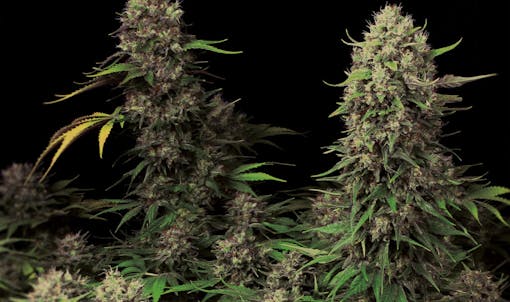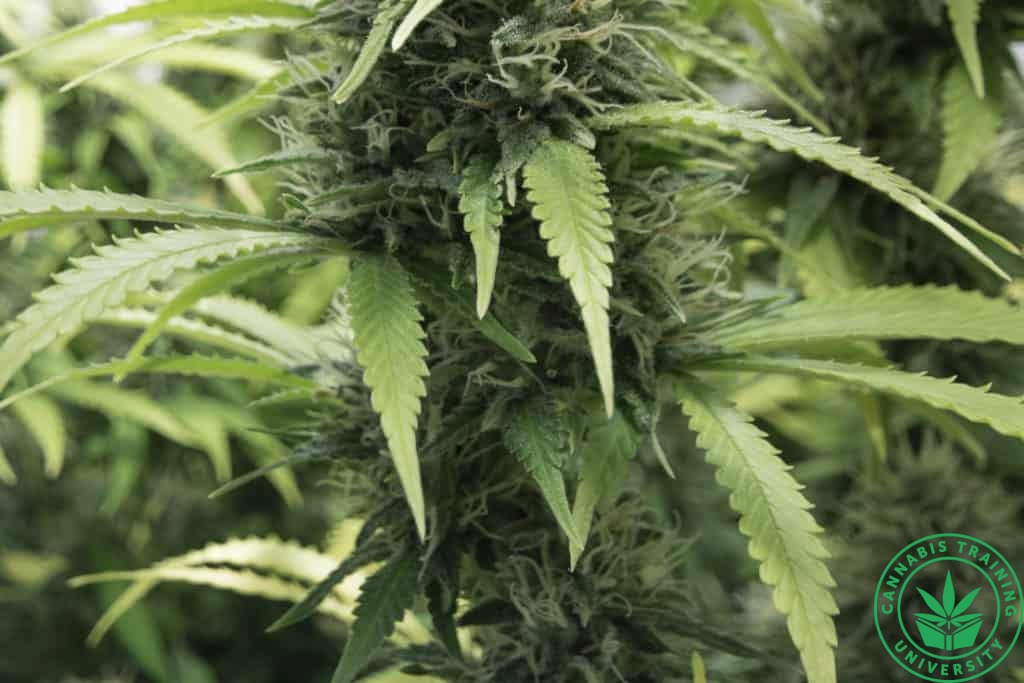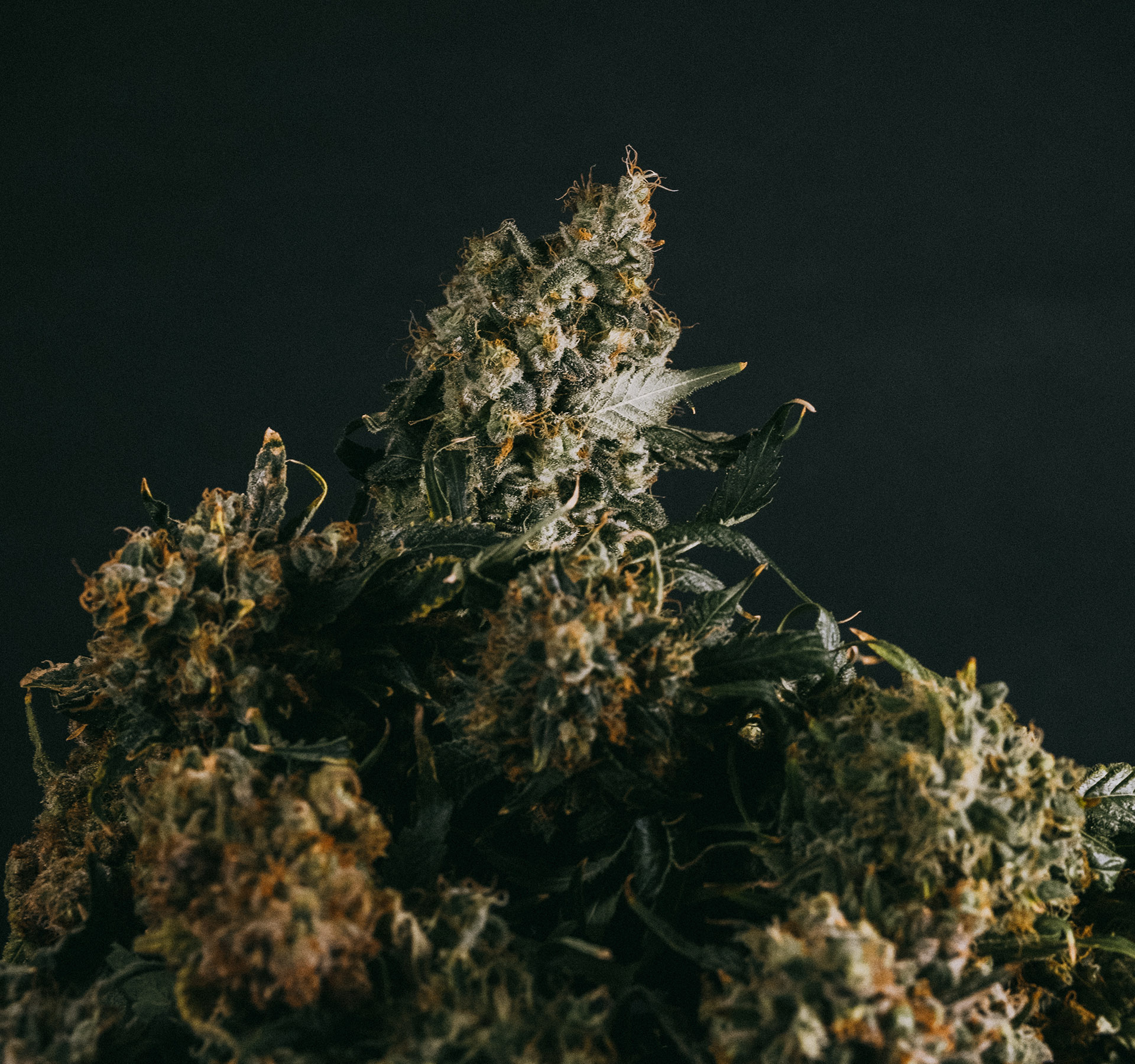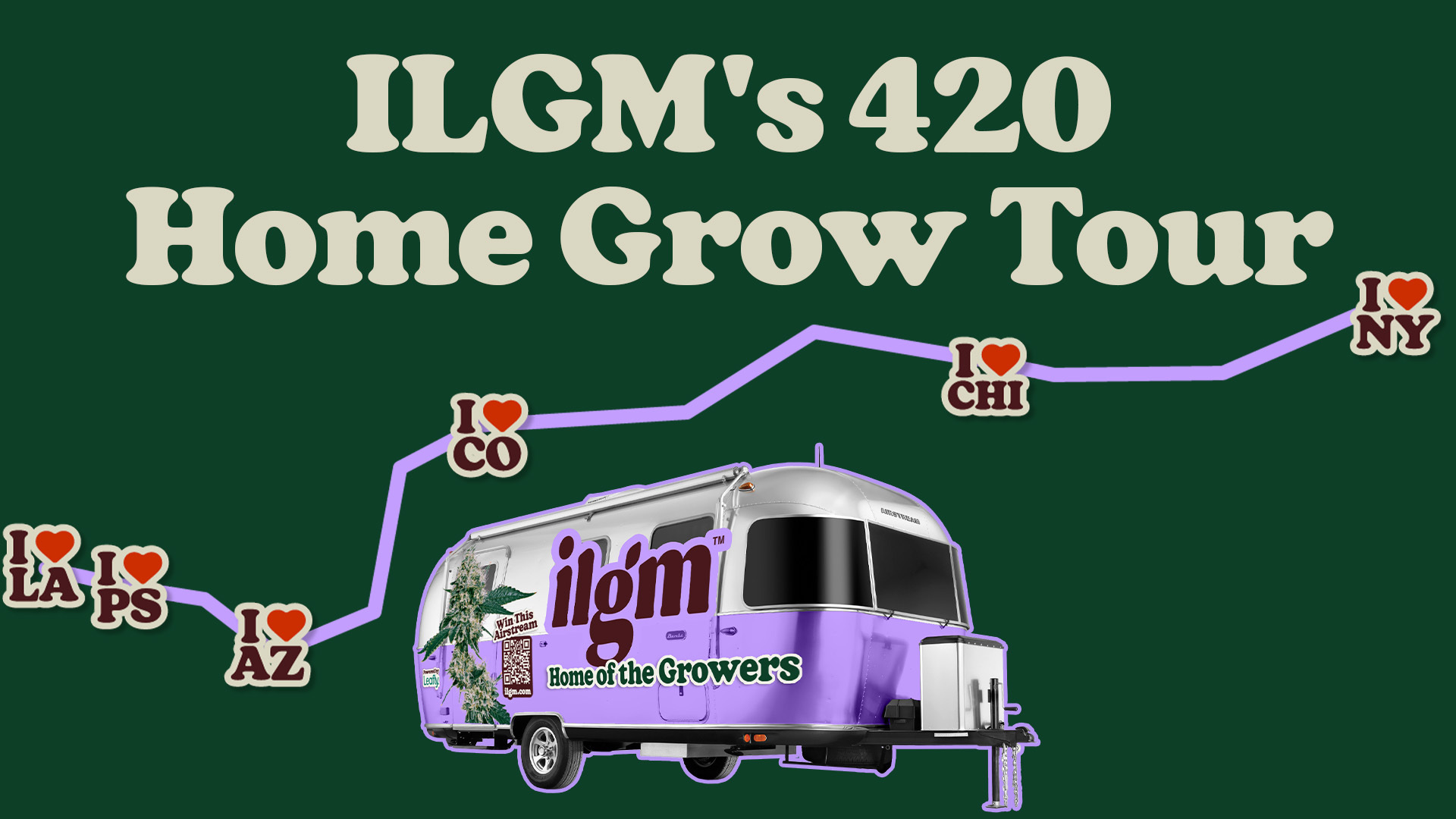Unparalleled genetics from one of Europe’s oldest seed banks let you grow a piece of the past.
Cannabis culture has undergone a massive transformation in the past decade. Shifting legalization laws have caused a sea change, taking the plant and those who grow it out of the dark corners and into the sun. As the weed world enters this bright new era, it has never been more important for passionate growers who care about the plant to connect to the history of cannabis. It’s vital for anyone who takes growing seriously to remember how cannabis culture owes what it is today to the ingenuity and bravery of talented breeders in the past.
The team at Paradise Seeds are just that sort of growers. As one of Europe’s oldest seedbanks, they carry a torch from a time when passionate people, not profit, ran the cannabis world. Their genetics have been charming critics and customers for decades, and now home growers in both Europe and the United States can finally experience the legendary quality of their feminized cannabis seeds for themselves.
We went deep with Paradise Seeds on three of their famous legacy strains, Wappa, Durga Mata, and Dutch Dragon, and we’re excited to give you the inside scoop into the history that makes these strains so special, as well as a couple of tips for how to grow these standsout strains for yourself. Afterward, stick around for a tour through the storied history of Paradise Seeds and the company’s visionary founder, Luc Krol.
Durga Mata
Indica | 22% THC | 55-60 day flowering time

Durga Mata is the end result of Paradise Seeds founder Luc Krol’s quest to breed a strain that is tough enough to endure both hostile climates and the missteps of inexperienced growers. For the genetic stock for such a creation, he turned to the Hindu Kush region and landrace strains. All indica strains trace their lineage back to the region, where the harsh environment and low average temperature bred hardy plants.
The strain that would become Durga Mata is the direct descendant of two landrace strains, one from Afghanistan, the other from the Himalayas. The result? A tough-as-nails strain that’s easy-to-grow nature and famous resilience has earned a spot in cannabis history.
Related
A guide to buying marijuana seeds
Durga Mata draws its name from the warrior form of the Hindu Goddess Parvati, a nod to both the strain’s geographic origins and how Durga Mata’s original mother towered over other plants in the first test grow. The iconic name helped popularize the strain through word of mouth, and before long, Durga Mata was a highly sought-after strain for both growers and consumers.
While Durga Mata was bred with northern latitudes in mind, it grows fantastically in a variety of southern climates, and loves indoor growrooms as well. It likes to expand horizontally and doesn’t take up much vertical space, so Durga Mata is a prime choice if you prefer the SoG method.
“I wanted to produce a strain which came equipped with the armour to survive a growing season in the north of Europe – cannabis seeds which you could literally throw into the garden and leave them!”
Luc Krol, Paradise Seeds Founder & Durga Mata breeder
No matter your setup, climate, or skill level, this goddess of a strain will deliver colorful buds; you’d have to try to get this plant to fail, and even then, it’s possible Durga Mata will just keep growing.
Those who turn to cannabis seeking relief from chronic pain, insomnia, or a host of other medical issues gained a particular fondness for Durga Mata. The strain has an appealing flavor that has been likened to Turkish Delight candy and induces a potent, but uplifting body high that won’t leave you in an uncomfortable couch-lock stupor. Stress and anxiety are absolutely no match for the mother goddess either, so make sure to keep some stocked when tense times are on the horizon.
Durga Mata is a strain for everyone—a time-tested classic that’s been winning the hearts and minds of the cannabis world for decades. Order now and get Paradise’s matriarch planted in your garden as soon as you can, so you can experience a little piece of divinity for yourself.
Wappa
Hybrid | 24% THC | 55-60 day flowering time

Dubbed the “perfect hybrid” by the team at Paradise Seeds, Wappa is an incredibly popular strain across Europe, where its legend only continues to grow. Today, Wappa is famed for its sweet scent, big buds, and formidable potency, but it wasn’t always that way.
“From the start I had a feeling this plant was going to be a hit…”
Luc Krol, Paradise Seeds Founder & Wappa breeder
It took the strain a while to catch on when it was released in the late 2000s, but it started spreading by word of mouth, and when it finally exploded, Europe’s cannabis scene was changed for good. Wappa won the hearts of growers due to its ability to uplift the body and mind, an experience that begins not when you smoke the strain, but when you first experience its distinctively sweet aroma.
Wappa’s exact parentage is a closely guarded secret by the Paradise Seeds team, but one whiff of Wappa will let you know that there’s a whole bunch of Sweet Skunk in its lineage. Beginner growers will have a great time with Wappa—it’s a low-maintenance sort of strain that’s on the more resilient side. Experienced growers who are interested in doing some of their own breeding are also drawn to Wappa’s genetic stability, making it an excellent platform for developing your own crosses.
Related
How are new weed strains created?
Wappa prefers a moderate climate and tends to grow wide and short, fitting well into grow rooms where space is at a premium. Paradise Seeds recommends you keep a support or two on hand just in case any of the horizontal branches get too laden with dense, frosted buds.
The strain’s incredible yield, combined with Paradise Seeds’ low prices, means that Wappa is one of the most budget-friendly strains on the market today. Order some now and see why Paradise Seeds’ “perfect hybrid” earns its title.
Dutch Dragon
Sativa | 22% THC | 60-65 day flowering time

An award-winning sativa that’s experienced a renaissance in recent years, Dutch Dragon is one of the brightest jewels in Paradise’s crown. Dutch Dragon began, like many Paradise Seeds strains, in the early 90s when Luc Krol began experimenting with seeds from a remote region of Swaziland that he acquired through a well-traveled coffeeshop connection. Those seeds eventually became Dutch Dragon, so named because of its soaring, magical high.
Related
A Cannabis Connoisseur’s Guide to Amsterdam Coffeeshops
Luc wasn’t completely happy with the strain, however, and set out to improve both Dutch Dragon’s yield and flavor. After a genetic infusion of Skunk and some Indian strains, a new version of Dutch Dragon was born. This rendition, released in 2002, snagged a Highlife Cannabis Cup victory and became one of Paradise Seeds’ signature sativa strains.
Just like its ferocious namesake, Dutch Dragon can grow to some prodigious sizes. Without intervention or training, Dutch Dragon plants can grow up to nearly 10 feet (3m) tall, so those with limited space will be best served by limiting vertical growth early.
“In the early days of Paradise Seeds, we were looking for a handful of statement strains which would lay down a marker for the company in the cannabis seed market…”
Luc Krol, Paradise Seeds Founder & Dutch Dragon breeder
The strain has an impressive yield when grown outdoors in warmer climates, but will still deliver a respectable crop of long, sticky buds when grown indoors or at northern latitudes. Compared to the other strains on this list, Dutch Dragon can be a bit trickier to grow, but intermediate or advanced growers need not fear this dragon.
Dutch Dragon is an unapologetic sativa that exemplifies the best qualities of the family. It’s earned a reputation as an excellent daytime smoke, with a crackling, energetic high that leaves your focus (mostly) intact. It has a strong lemon aroma but a softer flavor, where sweet notes come to the fore as a counterpoint to the sharp citrus, a flavor that drives real sativa heads absolutely wild.
Dutch Dragon’s fairy-tale is still going strong twenty years after it was first introduced, and will probably still be on top of the industry twenty years in the future as well. Click the link below to add your own page to Dutch Dragon’s legend.
A legend is born

Paradise Seeds is a unique organization in the cannabis world. They have been in official operation since 1994, making them one of Europe’s oldest seed banks and one of the oldest companies in the weed space generally. That sort of staying power is virtually unheard of in an industry that sees operations rise and fall with stunning regularity.
The team at Paradise chalks their remarkable longevity up to a sense of vision and purpose that flows from their founder, Luc Krol, on down. Paradise Seeds does not chase trends or easy money. They do not release strains to meet marketing moments, but when the strain meets their exacting standards. Their Northstar is the same as it was when Paradise was originally founded—a sheer, unbridled love of cannabis.
“I harvested it and smoked the buds with a couple of friends and that was it!”
Luc Krol, Paradise Seeds Founder
The Paradise Seeds story truly begins during the early 1980s in the suburbs of the Netherlands, when a teenage Luc got his start growing some cannabis seeds given to him by a friend after a vacation to the Caribbean island of Aruba. This first experience with cannabis inspired Luc to continue growing, a hobby that he pursued in his young adulthood when he moved from the suburbs into the squats of Amsterdam.
The squats gave Luc the open spaces and permissive environment he needed to lay the groundwork for Paradise. Amsterdam’s famous coffeeshops provided a fertile testing ground for new strains, and Luc quickly earned a name for himself as a master breeder with an innovative mind. Luc’s genetics were so popular that American growers would seek out his strains specifically, crossing the Atlantic just so they could smuggle seeds back to the West Coast, building his reputation internationally.
Paradise found(ed)
Paradise Seeds was officially founded to avoid legal trouble. A brush with the police caught Luc in hot water, but his lawyer recommended founding a legitimate company to protect himself and his investment. After filling out the paperwork to bring Paradise Seeds into the world, Luc found himself not only a free man, but one with a burgeoning cannabis business ready to explode into prominence.
The next decade saw a period of rapid growth for Paradise. They began filling their trophy case with cannabis cup victories for strains like Sensi Star and Dutch Dragon. That success gave the team the runway to briefly relocate to Switzerland, hoping to take advantage of favorable legal regulations that allowed for the tiny mountain nation to become an epicenter of cannabis culture.
That dream faded away in 2004 when legalization died in the Swiss courts, and a police raid left Paradise Seeds officially barred from the country. That wasn’t nearly enough to keep Luc and the team down, however. They headed back to Amsterdam, with fresh new strains and priceless experience to show for their Swiss years.
Related
How the Dutch Spread Cannabis Across the World
Under Luc’s leadership, Paradise thrived once they returned to the Netherlands. The team at Paradise was able to play a direct role in nearly every major cannabis innovation of the new millennium. Luc was influential in the rise of feminized cannabis seeds, and later the popularization of autoflowering seeds. These two variations are now the industry standards, giving modern growers convenience that Luc could have only dreamed of back in the Amsterdam squats.
Coming to America
The 2010s saw nothing short of a revolution in cannabis. The rise of homegrowing, a new interest in medical cannabis, and changing legal regulations in North America meant that cannabis seeds were more popular than ever. The decade also saw Paradise grow to unprecedented heights, opening up a brick-and-mortar store in Amsterdam and supplying the biggest grow in South America with their seeds.
The 2010s also saw the rise of a cannabis community ready to come out into the open and spread their passion with the world. Increased research into medical cannabis was a huge part of the changing attitudes towards the plant, and Paradise responded by breeding high CBD strains specifically for medical patients to manage their symptoms and launching the Medical Cannabis Bike tour. This event would see Paradise and representatives from around the cannabis community bike across Europe, raising approximately half a million Euros for continued research.
Related
The Leafly Starter Pack: A Comprehensive Guide to Medical Cannabis
Paradise would also strengthen their international connections by partnering with one of the most famous names in cannabis, Tommy Chong. This half of the iconic stoner duo was looking for a collaborator to provide his fledgling company with top-quality genetics. Paradise jumped at the chance to work with the legend, and developed four strains in partnership with Chong, Mendocino Skunk, L.A. Amnesia, Auto Kong 4, and Blue Kush Berry.
“We only hook up with growers and seed companies with the best quality, because I am not going to put my name to anything else. That’s why I said yes when Paradise Seeds came to us with a proposition to work together because those guys make the best seeds.”
Tommy Chong, cannabis icon
Paradise’s 30th anniversary last year saw the company reach commanding heights in the cannabis industry, with an eye toward the future that has served them so well in the past. Luc Krol still gets his hands dirty in the grow rooms, most recently assisting in the development of Paradise Seeds’ Mendo Breath collection, and a slew of other strains that are still in development.
Where the next thirty years will take Luc, the team at Paradise, and the rest of the weed world remains to be seen, but one thing is certain; there are few organizations who can claim even a fraction of their experience and passion. Both European and American growers curious as to the vast history of cannabis, or even just a desire to grow incredible weed, will be hard-pressed to find a provider of seeds with more knowledge and respect for the plant and the culture that supports it than Paradise Seeds. Click the link below to make your order and bring your grow one step closer to paradise today.
If you’re curious to read more about the fascinating history of Paradise Seeds and their incomparable founder, Luc Krol, you can read all about their thirty-year history on their website. You can also follow them on social media to keep up to date with new events, partnerships, and strains. Happy growing!
Availability subject to law.






















































